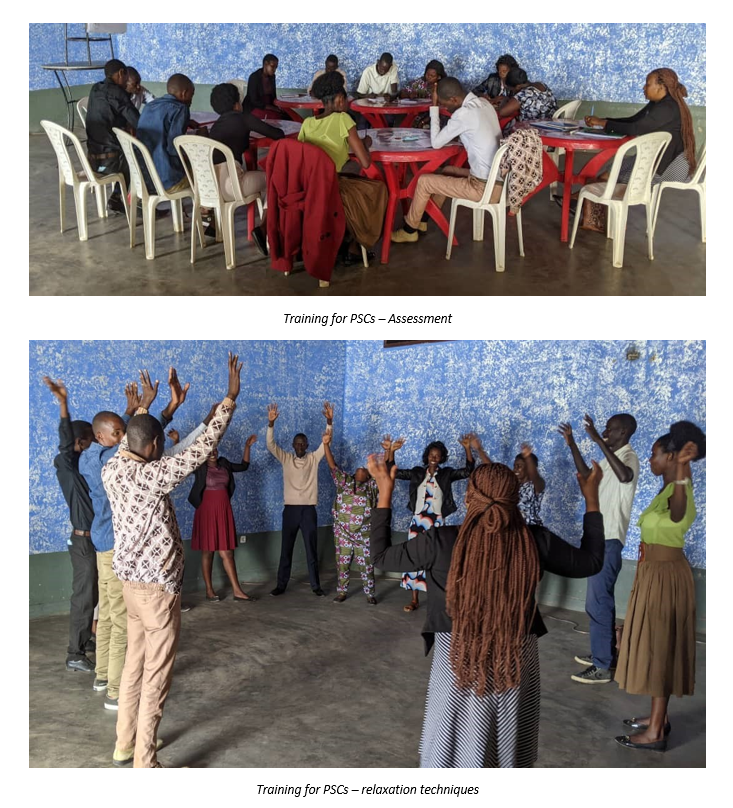“When you decide to do a project in a foreign country, where do you begin?” we are asked.
“We look for a local partner,” we respond.
“But how do you know who to trust?”
It’s A Good Question
People who wish to support our work are right to have concerns that we might be deceived by less than honest individuals who have spotted an opportunity for self-enrichment.
The Answer?
We do a great deal of research and then we rely on recommendations and word of mouth from people we know are reliable. Nineteen years ago, as I was preparing for my first fact-finding visit to Rwanda, the prospect of finding a trustworthy partner in an unfamiliar country was intimidating. My colleague on the trip, Lord Alton, a UK parliamentarian and human rights activist, asked around.
“People keep telling me that SURF, the Rwandan Survivors’ Fund, is dependable,” he said. “They survived the genocide and they want to rebuild their country. They sound authentic.” To quote Captain Renault in Casablanca, it was the beginning of a beautiful friendship.
At the start, we helped SURF build homes for groups of genocide orphans, known as child-headed households, who had been living on the streets or in precarious circumstances. SURF completed each development of dozens of homes on time and on budget. They did the same when we helped them build a medical centre/center that has since grown into a huge community resource.
They have recorded and preserved testimony from survivors of the genocide, providing support for thousands of genocide widows and orphans who have been deeply scarred by their experiences in 1994. Their work is practical – training people to start their own businesses – as well as recognising the enormous psychological pressures of long-term trauma. They address the stress, stigma, poverty and isolation faced by Rwandans who have lost their families and homes. Unlike so many development projects that promise the world and then move on when problems seem too complicated for a quick fix, SURF remain faithful to their mission, and Network for Africa has been proud to support them for the long term.
When they tell us about the progress at our joint projects, we are impressed by how detailed, professional and transparent their reports are. For this reason, Network for Africa is still working with SURF on a daily basis all these years later.
Each year, we reach hundreds more survivors who are living with the legacy of trauma, often lonely and isolated, with persisting mental health challenges. We do this through our group counselling programme where young genocide survivors are enrolled into counselling groups of 25, providing a supportive and safe environment to share their stories and experiences with others, often for the first time.
The Counselling Programme and How It Works
In January, another 345 joined these regular group counselling sessions. SURF has six clinical psychologists who manage and support the twenty-four peer support counsellors (PSCs) taken from the new group of 345. In a poor country like Rwanda, it would be impossible to provide clinical psychologists or psychotherapists for all the survivors needing support, so the project selects bright and committed survivors from each group to run their group. The peer support counsellors are given training in:
- Creating a safe and supportive environment in which survivors feel they can communicate, and where confidentiality is paramount.
- Encouraging survivors to participate, and giving them the emotional support to tell their story – it will often be the first time since 1994 that people have given voice to the horror they encountered.
- Recognising when members of the group need to be referred to SURF’s clinical psychologists for professional help.
- Making home visits to assess the challenges facing some survivors, such as caring for the young, the old and the unwell in poor conditions with significant economic hardship.
- Providing individual counselling sessions to group members who need particular support.
 The peer support counsellors conduct a baseline survey when people join the groups, enabling them to try to assess progress throughout their participation. Measuring happiness or depression is an inexact science, so the peer support counsellors work with SURF’s clinical psychologists to best understand what approach to take to individuals. For instance, which coping strategy works best, and how to develop people’s skills to manage their trauma when flashbacks bring distressing episodes. Throughout, the peer support counsellors are supervised by the clinical psychologists. In turn, SURF remains acutely aware that all involved may risk burnout, being so available to listen to people’s problems, providing support for those in need.
The peer support counsellors conduct a baseline survey when people join the groups, enabling them to try to assess progress throughout their participation. Measuring happiness or depression is an inexact science, so the peer support counsellors work with SURF’s clinical psychologists to best understand what approach to take to individuals. For instance, which coping strategy works best, and how to develop people’s skills to manage their trauma when flashbacks bring distressing episodes. Throughout, the peer support counsellors are supervised by the clinical psychologists. In turn, SURF remains acutely aware that all involved may risk burnout, being so available to listen to people’s problems, providing support for those in need.
The model is remarkably successful, judging by how participants rate their own progress from fear and depression to wanting to learn new skills and open their own businesses. However, it depends on the resourcefulness and resilience of SURF staff working with the peer support counsellors. Network for Africa salutes our remarkable partner, confident that together we offer something unique, efficient and cost-effective to thousands of genocide survivors.
If you would like to support this particular project, please consider saving your donation for our Big Give appeal, when your donation will be doubled. The match-giving campaign runs from Tuesday 28th November (midday) – Tuesday 5th December (midday) 2023.